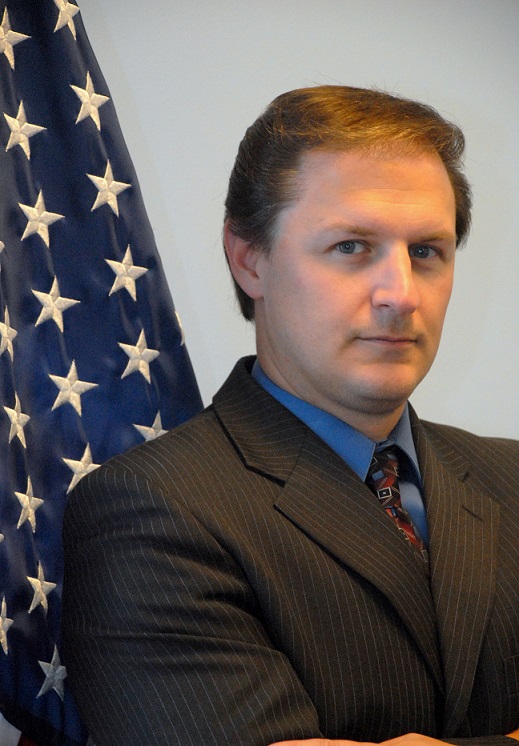 The NCUA shouldreinstate the open budget meeting it formerly had with creditunions or have a very good reason why not, Congressmen told anagency official Thursday.
The NCUA shouldreinstate the open budget meeting it formerly had with creditunions or have a very good reason why not, Congressmen told anagency official Thursday.
What's more, information detailing the NCUA's operating budget,which a representative claimed had been unanswered for more than ayear, better be quickly forthcoming.
|Speaking at a hearing of the House Financial Institutionsand Consumer Credit Subcommittee, Rep. Michael “Mick” Mulvaney (R-S.C.) grilled NCUA Director ofthe Office of Examination and Insurance Larry Fazio about theelimination of the agency's open budget meeting, last held in 2009.Mulvaney's tone indicated that the committee was unhappy with itsabsence.
|“ChairmanMatz felt there wasn't anything profitable coming out of thosemeetings,” Fazio told committee members. He added that the NCUAposts budget items online to discuss at open board meetings, inlieu of having face-to-face meetings with credit unions.
|Mulvaney interrupted Fazio, asking whether the NCUA's currentonline exchange provided a value similar to the in person meetingsdiscontinued six years ago. Fazio conceded that in person meetingswere valuable. Mulvaney also grilled Fazio about the NCUA's 2016budget hearing; Fazio replied the board has not yet determined ifit will conduct one.
|Mulvaney returned to his original question, noting that thecommittee had first asked about the open meeting's discontinuationon April 8, 2014.
|“It's been a year since we asked the question, and an answer anytime in the next nine months would be great,” Mulvaney saidsarcastically. The representative made it clear that the committeewould not wait for another year.
|But the NCUA did respond in 2014, Public Affairs Specialist JohnFairbanks said. During that meeting, Mulvaney asked NCUA GeneralCounsel Michael J. McKenna about the NCUA budgeting process, whichincluded the release of only aggregate figures, and whyline-by-line detail was not provided.
|McKenna, in a July 17, 2014 response, described the NCUA'sbudgeting process, noting that the agency's commitment totransparency included detailed formal memorandums presented to theboard and posted to NCUA'swebsite.
|However, the agency's effort are still not adequate, accordingto NAFCU's VP of Legislative Affairs Brad Thaler.
|“While NCUA has responded to Rep. Mulvaney's initial question,they still have not provided the appropriate details or taken theappropriate measures for budget transparency,” Thalersaid.
|The turbulent exchange Wednesday marked ameeting in which regulators from a variety of agencies were calledon the carpet to explain past disciplinary actions and the growingweight of regulatory burden, especially on small community banksand credit unions. Fazio testified about the NCUA's regulatoryrelief efforts and other initiatives the agency planned on takingwithin the coming months.
|“NCUA employs a variety of targeted strategies to protect thesafety and soundness of credit unions, members' savings, the ShareInsurance Fund and taxpayers,” Fazio said. “We strive to balancemaintaining prudential standards with minimizing regulatoryburden.”
|Regulatory reform should stand at the forefront of each agency'sagenda, especially for smaller institutions, Chairman RandyNeugebauer (R-Texas) said at the proceeding's opening. The NCUAcannot afford to dismiss the committee's expectations in this area,he added
|“Credit unions are in the midst of moving to their own newcapital structure that could result in considerable cost,”Neugebauer said. “Operation Choke Point has severely fractured anytrust in the supervision and examination process between financialinstitutions and regulatory agencies.”
|Neugebauer specifically questioned Fazio on the agency's currentpush for risk-based capital, noting that NCUA Board Member J. Mark McWatters questioned the rule andNCUA's legal authority to impose it on the credit union itregulates.
|“Do you have the confidence that NCUA is getting this right?”Neugebauer asked. Fazio countered by saying that the agency spent alot of time and effort with the proposed rule's first and seconditerations. He also noted that the agency had done considerableresearch on risk-based capital, including the legality of the ruleitself.
|“We're confident that what we're proposing is within the legalauthority of the NCUA board,” Fazio said.
|Fazio also noted the practice of credit unions maintaining acapital cushion above the well-capitalized minimum is aninstitutional preference, not a regulatory requirement. Ascurrently proposed, Fazio said the rule would affect the 1,400credit unions that have more than $100 million in assets. Only 29would fall below the well capitalized level if the rule wasimplemented as currently written, the regulator said, and thosecredit unions would require approximately $53 million in additionalcapital to comply. Fazio described the amount as relatively modest,explaining the 29 outlier credit unions collectively hold $13billion in assets.
|Fazio's testimony revealed the NCUA board will finalize a rulenext week to simplify how federal credit unions add associationalgroups to their fields of membership.
|NAFCU SVP of Government Affairs and General Counsel Carrie Hunt voiced opposition to what Fazio said in a writtenstatement issued during the proceedings, including the bid for theagency's third-party vendor examination authority, which the tradegroup deemed as unnecessary.
|“Additionally, we disagree with NCUA's contention that itssecond risk-based capital proposal represents regulatory relief forcredit unions,” Hunt wrote. “NAFCU and our members firmlybelieve this proposal is unnecessary and will only impose moreregulatory burden on an already extremely well-capitalizedindustry.”
|Hunt also applauded Mulvaney's recently issued NCUA Budget Transparency Act, which would require theGovernment Accountability Office to study almost every aspect ofthe agency's budgeting process, as a way to help the agency promotemore budget transparency in the future.
Complete your profile to continue reading and get FREE access to CUTimes.com, part of your ALM digital membership.
Your access to unlimited CUTimes.com content isn’t changing.
Once you are an ALM digital member, you’ll receive:
- Critical CUTimes.com information including comprehensive product and service provider listings via the Marketplace Directory, CU Careers, resources from industry leaders, webcasts, and breaking news, analysis and more with our informative Newsletters.
- Exclusive discounts on ALM and CU Times events.
- Access to other award-winning ALM websites including Law.com and GlobeSt.com.
Already have an account? Sign In
© 2024 ALM Global, LLC, All Rights Reserved. Request academic re-use from www.copyright.com. All other uses, submit a request to [email protected]. For more information visit Asset & Logo Licensing.







